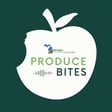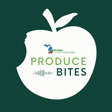
Beginning Farmer Curriculum
Beginning farmer educators and partners from across Michigan have come together to author a beginning farmer curriculum, rooted in participatory action learning, to offer a solid foundation for beginning farmer training programs. In this episode, Mariel Borgman and Kathy Sample talk through their contributions to the curriculum and how these modules can support effective learning and engagement for beginning farmers.
Beginning Farmer Curriculum and Resources:
Beginning Farmer Workshops:
Kalamazoo Valley Community College will be hosting a series of free workshops for beginning farmers for an opportunity to learn farming skills and provide feedback on the new curriculum modules. A produce safety-specific workshop will be held on May 29.
All workshop dates and topics are listed below. Click a link below to register.
- May 22 - Urban Agriculture and Policy
- May 29 - Produce Safety
- June 5 - Soil Health
- June 12 - Integrated Pest Management
- June 19 - Pollinators
- June 26 - Farm Financial Management
Train-The-Trainer Workshops:
A series of train-the-trainer workshops have been planned in 2025 for beginning farmer educators to receive an introduction to the curricula and teaching techniques. Click a link below to register!
- June 3 – Grand Rapids, register here
- June 6 – Flint, register here
- June 10 – Online, register here
- June 17 – Chatham, register here

